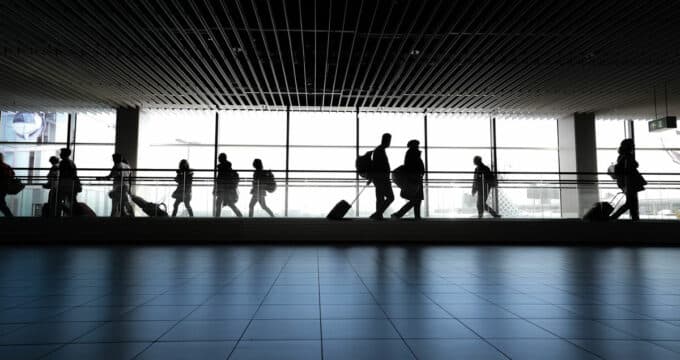Checking in on US policy for intensive English programmes
In a recent article, we discussed the impact of foreign government policies and programmes on Intensive English Programmes (IEPs) in the US. Not all issues affecting IEPs originate with foreign governments, however. The US Department of Homeland Security (DHS), which oversees visa regulations for schools and international students (that is, for F-1 or M-1 visa holders), has become more involved and interested in the operations of IEPs in recent years, especially as a result of new legislation passed in 2010 that requires IEPs to now be accredited by a regional or national accrediting agency recognised by the Department of Education. Interestingly, many other policy changes anticipated from DHS and reviewed on ICEF Monitor last year are still pending today, more than 18 months later. The department has released draft policy proposals and has called for comments from stakeholders. However, IEPs across the US are still awaiting the final policy determinations in the following areas:
- Defining required periods of study before student vacations may be granted;
- Determining new processes for conditional admissions, whereby universities grant acceptance to students pending their attainment of required English proficiency for academic study;
- Defining and regulating operations of pathway and bridge programmes.
The holiday question
The pending policy on annual vacations may at least offer some clarity on this issue. Most visa regulations were written long before IEPs were common, and they largely assume an academic year of two semester terms of roughly four months each with set summer breaks. But of course language programmes come with terms of virtually any length and often run year-round. Therefore, it is difficult to arrive at a common interpretation of the current regulations (which allow for one term of vacation after an academic year of study) for IEP students. For example, even for programmes that follow the traditional semester system, a student beginning in spring term might be forced to study even longer than an academic year without break if the school had only a "mini-term" in summer, since a full academic year would come only sometime during or after the full fall term. Further, many programmes have self-prescribed vacation periods (often in summer) and thus give any enrolled student that holiday time, even if the student has only been enrolled a very short time. Students in those schools who had not studied a full academic year would need to attend some other school in operation during that period, or schools could be pushed towards removing those set break periods. The many variations of programme start and end dates (from totally rolling admissions, with starts allowed each week, to programmes based on a semester schedule with only two or three start dates each year) lead to a myriad of different interpretations of current law. Many schools have set their own standards and simply hope and trust that their policies, if examined by DHS officials, would be deemed allowable and in line with the intent of the existing rules. It is doubtful that new regulatory language will truly cover all cases and variations in programme formats and schedules, but IEP providers look forward to guidelines that are more relevant and appropriate to the context of intensive English study.
Conditional admissions
The new guidance for conditional admissions as well as pathway or bridge programmes will also help programmes that are currently in a state of limbo regarding how their operations should proceed. Conditional admission policies have long been used to help recruit more international students into universities. The condition in most cases is that the students show they have met English proficiency requirements before final acceptance is granted (either through subsequent English testing and/or completion of a specified level of the university’s IEP, or that of an affiliated IEP provider). Institutions with conditional admissions policies accept a student, then issue an I-20 (the government’s certificate of eligibility to apply for an F-1 student visa) stating that the student is admitted but not yet proficient in English. The conditions are then specified on the I-20 with wording inserted such as, "The student will be enrolled first in the IEP of this institution and able to enter the academic programme when proficiency is shown." DHS’s position, however, is that the I-20 should only be used for fully admitted students. The department also argues that it is difficult to track progress as well as programme location for many conditionally-admitted students, especially if schools do not thoroughly update student visa records in the Student and Exchange Visitor Information System (SEVIS). SEVIS is a web-based system that DHS uses to maintain information on F and M students in the United States to show that they moved into an academic programme after completion of language studies. Thus, the draft version of new policy for conditional admissions states that moving forward, I-20 forms cannot be issued for academic programmes if the student is not fully admitted without conditions. Instead, the initial I-20 should be for language study only, after which the institution would issue a new I-20 when the student has met any admissions conditions and is ready to commence their academic programmes.
Pathway programmes
The entire conditional admission issue has grown even more complicated in recent years with the growing prominence of "bridge" or "pathway" programmes in the US, and particularly with the increasing number of contractual agreements between universities and third-party providers who deliver programmes in which students pursue language and academic courses at the same time. Even within IEP circles, definitions and labels of these types of programmes vary greatly, which no doubt contributes to DHS’s interest in clarifying its guidance in this area. In pathway programmes, academic and language content are often delivered simultaneously, with academic content delivered by language instructors or by faculty possibly outside of the normal university instructor base. In bridge programmes, the students often study English until they reach a specified level of proficiency, and then are allowed to add one or two academic courses until the point at which they can progress to full-time academic study. The DHS draft policy in this area aims to clarify how institutions monitor and report on F-1 (student visa) students, in terms of whether the university or IEP issues the I-20, which party is in charge of verifying attendance, what constitutes a full course load of study, and other issues.
Current status and an important change for dependents
Many providers have pathway or bridge programme plans on hold until such time as the new regulations are issued, and until it becomes more clear how they will be interpreted by US visa officers, counsellors, and other key stakeholders in the US and overseas. As it stands now, the new policy directives have been in final review stage by DHS officials for some time, and the department has not given any timetable as to when its official policy guidance will be released. The window for public or stakeholder comments on each of the issues noted above has now closed and each stands now as simply "in review by SEVP" (Student and Exchange Visitor Program). We will continue to follow these important policy developments in the US, and will update our coverage when DHS releases final guidance in any of these areas. In the meantime, IEPs stand to benefit from a June 2015 policy announcement from DHS that now allows F-2 visa holders (that is, dependents of primary F-1 student visa holders) to study part-time in the US. Previously, F-2 visa holders were not formally permitted to study and this had led to some variability and confusion among IEP providers with respect to enrolling accompanying family members of F-1 visa holders. Readers are encouraged to consult the DHS website for additional detail and background on this important clarification on study opportunities for F-2 visa holders.














